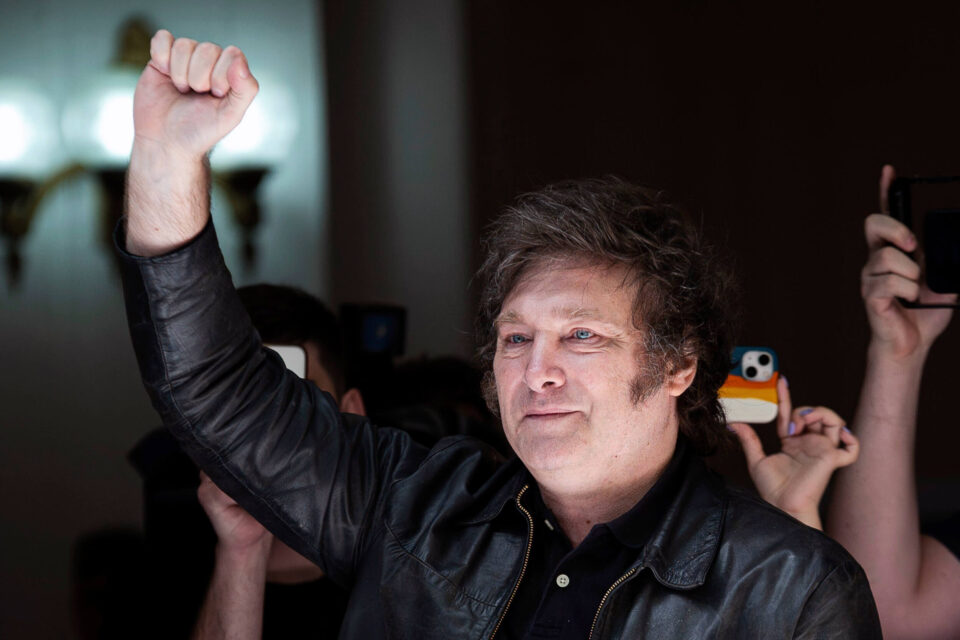In a remarkable turn of events, Javier Milei and the Liberty Advances Party of Argentina, “La Libertad Avanza,” emerged victorious in the Presidential election of Argentina. Javier Milei won with close to 56% of the voters, while the Peronist (fascist/socialist) candidate Sergio Massa got 44%. This triumph stands as a testament to the potential success of libertarians when employing effective campaign strategies. Javier Milei is the first Libertarian to win the presidency of a country. My interest in Javier Milei dates back to 2018, and from the moment I encountered him, I was captivated. His ability to transform seemingly boring topics, such as inflation, into compelling issues for the average voter impressed me. He substantiated Austrian Economics by prevailing in televised debates against Keynesian journalists and economists.
A noticeable issue with recent US Libertarian presidential candidates is their lack of dynamism. There seems to be a lack of compilation clips showcasing Jo Jorgensen or Gary Johnson’s noteworthy moments or victories in debates. In stark contrast, Javier Milei embodies the Argentinian libertarian version of Ben Shapiro, masterfully dismantling Keynesians and socialists in debates. Consider having two candidates who share your favored policies — would you choose the one who excels in debates, the individual brimming with energy? Or would you opt for the less engaging, more boring candidate?
A shift in the approach to debates is imperative for libertarian candidates. Instead of pleading for inclusion in national debates, they must proactively engage in televised discussions with proponents of opposing ideologies. Such debates not only provide a platform for presenting libertarian principles to a wider audience but also showcase the strength of the ideas in direct comparison with alternatives. Engaging in dialogues with supporters of other candidates demonstrates confidence and competence, while also dismantling misconceptions about libertarianism. By embracing this strategy, libertarian candidates can step out of the shadows and become formidable contenders in the realm of public discourse.
Another distinction setting Javier Milei apart from recent US libertarian presidential candidates lies in his clarity of campaign themes and issues. Gary Johnson’s campaign, for instance, was built on the premise of being neither Trump nor Hillary. Although a resonant theme, Johnson’s own gaffes undermined his message. From not knowing what Aleppo was to questionable behavior on television, his effectiveness was hindered. For example, he stuck his tongue on TV while giving a response to an interviewer. When asked on tv to endorse a political figure in the world he named Shimon Peres which recently passed at the time, so the interviewer asked him to name one alive and he couldn’t. He had forgotten Vicente Fox’s name and Bill Weld saved him by naming him and named Angela Merkel. All those responses are Keynesians and neoliberals, a far cry from libertarian ideals. And Bill Weld literally said he “vouches for Hillary Clinton”.
In 2020, medical freedom, criminal justice reform, and gun rights emerged as significant issues due to the activism surrounding them. Unfortunately, Jo Jorgensen failed to effectively champion these causes. Gun rights militias were on the rise like the NFAC and Boogaloo Bois and the biggest progun rally in US which took place in Virginia of 2020 yet she didn’t take the momentum. The legacy of the party’s opposition to the war on drugs and police militarization since its inception in 1971 was scarcely highlighted.
While criminal justice reform was discussed, Jorgensen’s endorsement of the BLM movement conflicted with many libertarian values. Tthe majority of their activists voted and donated to democrats like Joe Biden and Kamala Harris, who have a huge history of being anti criminal justice reform, they also promoted the destruction of private property and private businesses. Of course it drew considerable criticism and division in the party. Medical freedom wasn’t even an issue on the main page of the website campaign.
Javier Milei’s predictive insights also set him apart with his “A-ha moments” or “I told you so” moments. He accurately forewarned about certain policies and their consequential outcomes, such as those related to the central bank, inflation, and monetary policy. This capacity to anticipate and explain consequences echoes figures like Ron Paul in his warnings about the war on drugs and US foreign policy. To truly impact change, we need candidates who can prophesize potential pitfalls.
Lastly, the power of thematic repetition plays a significant role in Milei’s success. His supporters can recite his theme of what libertarianism is in unison, creating a strong sense of unity and identity. This tactic could be mirrored within the libertarian movement by emphasizing core principles like the “Non-Aggression Principle,” influential works such as “I, Pencil” by Milton Friedman, The US Constitution and even satirical pieces like “National Anthem of Libertaria” by Dominic Frisby, parody of the Soviet Union anthem. This strategy fosters group cohesion around shared ideals, distinguishing libertarians from others.
In conclusion, the triumph of Javier Milei and the Argentine Libertary Forward party underscores the potency of effective campaigning. It proves that Libertarians can win when we campaign the right way. The contrasting elements between his success and the challenges faced by recent US libertarian candidates illuminate vital lessons for the movement. Whether through compelling debates, clear issue identification, foresight, or thematic unity, there are opportunities to elevate libertarian ideals and secure success on a broader scale.



